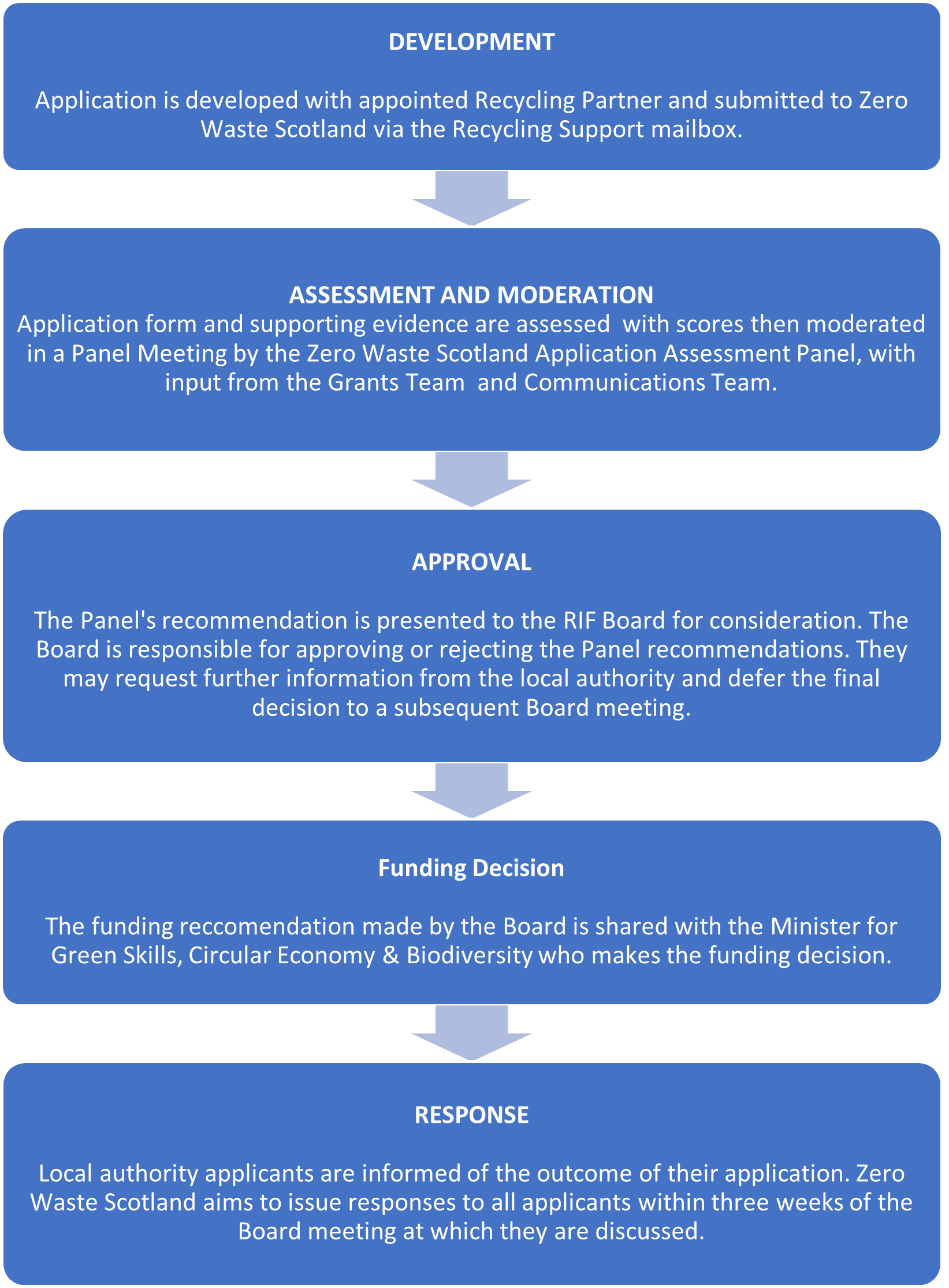Recycling Improvement Fund
The Scottish Government launched a £70 million five-year Recycling Improvement Fund (RIF) in 2021 to provide opportunities for capital funding grants for local authorities to improve recycling infrastructure and services across Scotland.
The Fund is one of the biggest investments in recycling infrastructure to date and aims to accelerate progress towards Scotland’s ambitious waste and recycling targets and net zero commitments.
Local authorities across Scotland are encouraged to apply to the fund to take forward projects that will increase both the quantity and quality of recycling whilst delivering wider environmental benefits. Partnership approaches are encouraged where there is potential to maximise impact.
Application proposals must be consistent with the overarching aim of the fund, which is to “accelerate progress towards 2025 waste and recycling targets and Scotland’s net-zero carbon commitment, by strengthening and improving local authority recycling infrastructure, resulting in increased consistency of collection, improvements to the quality and quantity of material collected, and wider environmental and carbon benefits”.
The total grant allocation will be budgeted annually, subject to regular review, with the current allocation noted below:
- Year 1 - £5,300,000;
- Year 2 - £16,000,000;
- Year 3 - £18,650,000;
- Year 4 - £15,600,000;
- Year 5 - £14,500,000.
*Year 1 underspend to be reallocated to future years. Funding profile subject to review.
Several local authority awards have been made to date for a diverse range of projects including service changes to increase kerbside and communal recycling provision, in-cab technologies to support operational efficiencies, and new treatment infrastructure to sort and recycle plastic films. View full list of all funded projects to date.
Application Development Support
Zero Waste Scotland will manage and administer the Fund across its five-year life. Scottish local authorities are invited to develop and submit applications to the Fund in collaboration with their appointed Zero Waste Scotland Recycling Partner. Building on our strong relationships and existing support offering, our Recycling Team is committed to working proactively with our local authority partners to explore and develop impactful applications to the Fund.
Local authorities seeking to develop an application can obtain an Application Form by contacting their allocated Recycling Partner. Partners will provide detailed advice on the scope of the Fund, the types of projects being sought, the application process, and will also give one-to-one support to assist with the development of an in-scope application. Full guidance on how to complete the Application Form, including details of the assessment process, can be found in the Application & Project Management Guidance Document.
Applications to the Fund should be developed in line with the above-mentioned aims and objectives of the fund and the following criteria:
- Evidence-led;
- Impact and Transformation;
- Strategic and Collaborative;
- Feasibility;
- Acceptability;
- Additionality.
A full description of each of the above criteria, along with the requirements for an application to achieve an ‘excellent’, ‘good’, ‘acceptable’, ‘poor’, or ‘not acceptable’ score against each can be found here.
Zero Waste Scotland staff will be on hand to provide significant experience and support across all stages of project development, from initial concept development, to planning, procurement, and implementation.
Application Submission
Local authorities must submit their completed applications no later than five weeks prior to the Recycling Improvement Fund Board’s scheduled meeting dates. This will ensure there is sufficient time for clarifications to be discussed and final amendments made where necessary to an application prior to being assessed.
Zero Waste Scotland welcomes the submission of draft applications in advance of these deadlines to allow advice and support to be given to ensure that the application is as strong as possible when it is submitted for assessment.
The dates of future Board meetings and corresponding submission deadlines are listed below:
| Date of Board Meeting | Submission Deadline |
| 28 September 2022 | 24 August 2022 |
| 14 December 2022 | 9 November 2022 |
| 7 March 2023 | 7 February 2023 |
| 31 May 2023 | 26 April 2023 |
| 27 September 2023 | 23 August 2023 |
| 13 December 2023 | 8 November 2023 |
Completed applications should be submitted to Zero Waste Scotland via the following email address: recyclingsupport@zerowastescotland.org.uk.
Please note that in some circumstances it may be beneficial to delay the submission of an application to increase the likelihood of success at a later RIF Board meeting. Your appointed Zero Waste Scotland Recycling Partner will advise on whether an application is sufficiently developed and fit to be submitted for assessment.
Application Assessment
The assessment of completed applications is undertaken by a minimum of three suitably experienced and skilled staff from the Zero Waste Scotland Recycling Improvement Fund Team who convene the Application Assessment Panel. The Terms of Reference for this Panel can be found here. and a copy of the Assessment Matrix used by each Panel member to score the applications can be accessed here.
Applications assessed by the Panel are summarised and presented to the Recycling Improvement Fund Board with a recommendation on whether to fund, part-fund, or reject. The Board consists of representation from COSLA, SOLACE, SEPA, Zero Waste Scotland, and the Scottish Government. The Board considers the applications and makes a funding recommendation to the Minister for Green Skills, Circular Economy and Biodiversity.
Zero Waste Scotland aims to communicate all funding decisions back to local authorities within three weeks of a Board meeting and will confirm the outcome of decisions to applicants in writing.
Summary of Application Development and Assessment Process

Useful Links
Please visit the pages below to keep up to date with progress on the Charter for Household Recycling and the Route Map to 2025 and beyond, as developments may influence decisions regarding the best possible areas to target applications for RIF funding.
